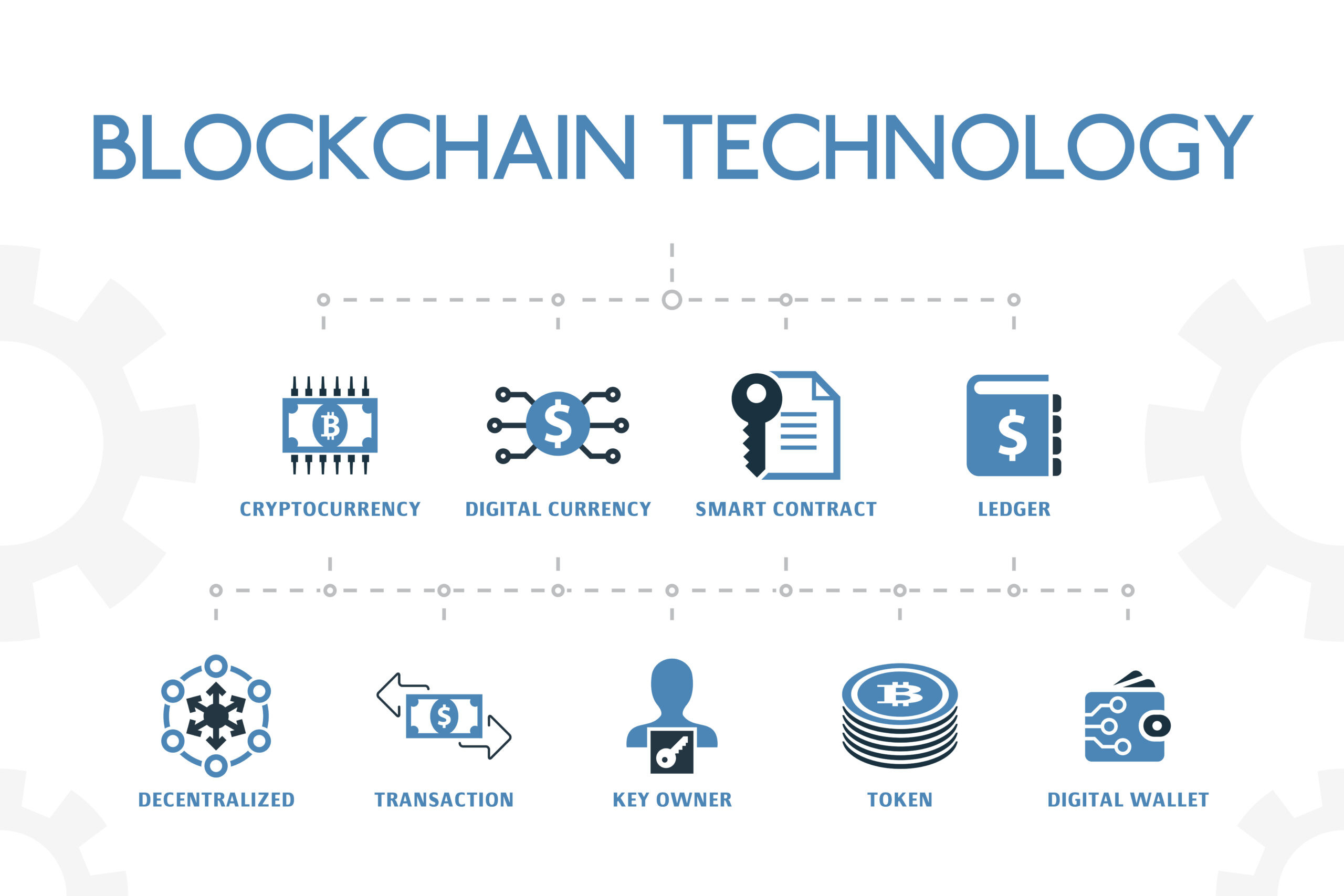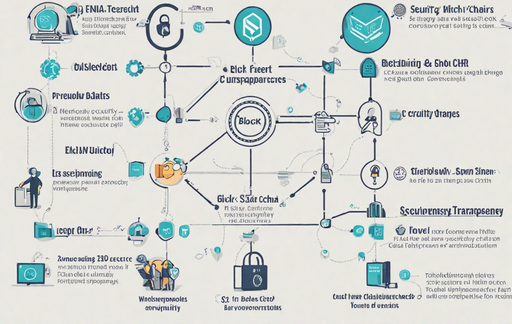Unlocking Business Growth: Harnessing the Power of Block Chain Technology.
In today’s ever-evolving business landscape, staying ahead of the curve is crucial for sustainable growth and success. One technology that has emerged as a game-changer is Block Chain. While initially associated with crypto currency, Block Chain technology has far-reaching implications beyond digital currencies. It has the potential to revolutionize industries, streamline processes, enhance security, and unlock new opportunities for businesses. In this blog post, we will explore the power of Block Chain technology and how it can be harnessed to drive business growth. From decentralized data storage and transparent supply chains to smart contracts and improved customer trust, join us as we delve into the transformative potential of Block Chain and discover how your business can leverage this technology to thrive in the digital era.

1. Understanding the Basics of Block Chain Technology
Block Chain technology has been making waves in recent years, promising to revolutionize various industries and unlock new business growth opportunities. But what exactly is Block Chain technology, and how does it work? Understanding the basics of Block Chain is crucial to harnessing its power for business growth. At its core, Block Chain is a decentralized, distributed ledger that securely records transactions across multiple computers, known as nodes. Each transaction is grouped into a block and linked to the previous block using cryptographic hashes, forming a chain of blocks – hence the name Block Chain. One of the key features of Block Chain is its immutability. Once a transaction is recorded on the Block Chain, it becomes virtually impossible to alter or delete, ensuring transparency and trust in the system. This decentralized nature eliminates the need for intermediaries, such as banks or third-party payment processors, reducing costs and increasing efficiency. Block Chain technology relies on consensus mechanisms to validate and add new blocks to the chain.

The most widely known consensus algorithm is Proof of Work (PoW), which requires participants, known as miners, to solve complex mathematical puzzles to validate transactions. Another popular consensus mechanism is Proof of Stake (PoS), where validators are chosen based on the amount of cryptocurrency they hold and are willing to “stake” as collateral.
While Block Chain technology is often associated with cryptocurrencies like Bitcoin, its potential extends far beyond digital currencies. Its decentralized and transparent nature makes it suitable for various applications, such as supply chain management, healthcare records, smart contracts, and more. To fully harness the power of Block Chain for business growth, it’s essential to explore its potential use cases, understand the underlying technology, and stay updated on the latest developments in the field. By embracing Block Chain and its benefits, businesses can streamline processes, enhance security, and drive innovation in their respective industries.
2. Enhancing Security and Transparency with Block Chain
In today’s fast-paced business landscape, security and transparency are paramount. This is where Block Chain technology comes into play, offering a promising solution to enhance security and transparency in various industries. Block Chain, at its core, is a decentralized and immutable digital ledger that records transactions across multiple computers. This distributed nature of Block Chain ensures that data is securely stored and verified by a network of participants, eliminating the need for a central authority. This decentralized approach significantly reduces the risk of data breaches and tampering, making it an ideal solution for businesses looking to enhance their security measures. By implementing Block Chain technology, businesses can create a transparent and auditable system.

Every transaction recorded on the Block Chain is immutable and time-stamped, providing an accurate and tamper-proof record of events. This transparency not only builds trust among customers and partners but also enables efficient tracking and auditing of transactions, reducing the risk of fraud and enhancing compliance efforts. Moreover, Block Chain technology introduces smart contracts, which are self-executing contracts with predefined rules encoded within the Block Chain. These smart contracts automatically execute transactions when specific conditions are met, eliminating the need for intermediaries and reducing the risk of errors or disputes. This automation streamlines business processes and enhances efficiency, ultimately driving growth.
The potential applications of Block Chain technology for security and transparency are vast. In supply chain management, for example, Block Chain can provide real-time tracking and verification of goods, ensuring authenticity and preventing counterfeiting. In the financial sector, Block Chain can secure transactions, simplify cross-border payments, and streamline Know Your Customer (KYC) processes. Additionally, Block Chain can revolutionize the healthcare industry by securely storing and sharing patient data, enabling better collaboration and improving patient outcomes. As businesses continue to embrace digital transformation, harnessing the power of Block Chain technology is crucial to unlocking growth. By enhancing security and transparency, Block Chain can empower businesses to build trust, streamline processes, and create new opportunities for innovation. Embracing this transformative technology is not only a strategic move but also a competitive advantage in today’s rapidly evolving business landscape.
3. Streamlining Business Processes with Smart Contracts
In today’s fast-paced business world, efficiency and productivity are key factors for success. This is where Block Chain technology and smart contracts come into play. Smart contracts, powered by Block Chain technology, have revolutionized the way business processes are carried out. Smart contracts are self-executing agreements with predefined terms and conditions. They are stored on a Block Chain, enabling secure and transparent transactions without the need for intermediaries. By automating and streamlining business processes, smart contracts eliminate the need for manual intervention, reducing errors and saving time and money. One of the key benefits of smart contracts is their ability to provide trust and transparency. Since all transactions are recorded on a decentralized and immutable Block Chain ledger, there is no room for manipulation or fraud.

This instills confidence in both parties involved in the contract, fostering trust and improving business relationships. Another advantage of smart contracts is their efficiency in executing complex business operations. By automating tasks and removing the need for intermediaries, smart contracts enable faster and more accurate transactions. This not only saves time but also reduces costs associated with manual processing and paperwork. Furthermore, smart contracts offer enhanced security. Traditional contracts are susceptible to breaches, tampering, or loss. In contrast, smart contracts are encrypted and stored across multiple nodes in a Block Chain network, making them highly secure and resistant to hacking or data loss. Implementing smart contracts in your business can significantly streamline processes such as procurement, supply chain management, and payment settlements. By removing intermediaries and automating tasks, you can achieve faster transaction times, reduced administrative burden, and improved accuracy.
In conclusion, harnessing the power of Block Chain technology through smart contracts can streamline business processes, enhance efficiency, and foster trust and transparency. As more businesses recognize the potential of this technology, it is becoming increasingly clear that adopting smart contracts is a vital step towards unlocking business growth in the digital era.
4. Unlocking New Opportunities and Improving Customer Trust
Block Chain technology has revolutionized the way businesses operate by providing unprecedented transparency, security, and efficiency. By harnessing the power of Block Chain, businesses can unlock new opportunities and improve customer trust in ways never before possible. One of the key benefits of Block Chain technology is its ability to provide a decentralized and immutable ledger.
This means that every transaction and interaction is recorded in a transparent and tamper-proof manner. This level of transparency not only enhances trust between customers and businesses but also allows for greater accountability and traceability in supply chains. With Block Chain, businesses can streamline their operations and eliminate the need for intermediaries, reducing costs and increasing efficiency. By using smart contracts, businesses can automate processes and execute agreements without the need for manual intervention, saving time and resources. Furthermore, Block Chain technology enables businesses to create new revenue streams and tap into previously untapped markets. For example, by implementing Block Chain-based loyalty programs, businesses can incentivize customer engagement and reward loyalty in a secure and transparent manner.
Customer trust is the foundation of any successful business. Block Chain technology offers a unique opportunity to enhance customer trust by ensuring the integrity and security of transactions and data. By leveraging Block Chain, businesses can provide customers with peace of mind, knowing that their personal information is protected and that they are engaging with a transparent and accountable organization. In conclusion, Block Chain technology unlocks new opportunities for businesses to drive growth and improve customer trust. By embracing this transformative technology, businesses can streamline operations, create new revenue streams, and provide customers with a level of transparency and security that was previously unattainable. It’s time for businesses to harness the power of Block Chain and unlock their full potential in today’s digital age.
Recent Posts
Check Our Digital Marketing Services
- Amazon Advertising & Amazon Listing
- Contact Us
- Content Marketing
- Email Marketing
- Facebook Advertising
- Flipkart Advertising & Flipkart Listing
- Get Quote
- Google Advertising
- Google My Business (GMB) Management
- Portfolio
- PPC(Pay-per-click) Advertising
- Privacy Policy
- SEO services in varanasi
- Services
- SMM
- SMO
- Storybook
- Storybook Form
- Storybook Template
- Testimonials
- Website Development
- WhatsApp Marketing
- Work